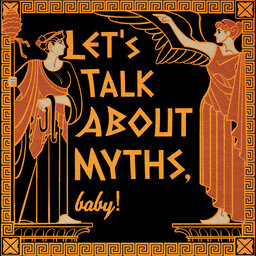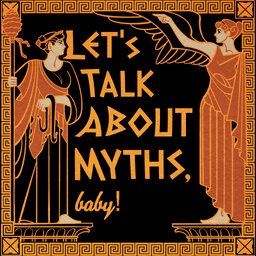Here’s Why Pseudoarchaeology & the Search For Atlantis is Bad, Actually (Deconstructing Atlantis Conversations RE-AIR)
Due to a frustratingly renewed interest, we're revisiting the Deconstructing Atlantis series.
Today's episode features conversations from last year's Deconstructing Atlantis series: with Flint Dibble, David S. Anderson, and Steph Halmhofer. Check out Flint's twitter relevant threads: Atlantis in current pop culture, the dangers of Atlantis "lore", erotic vases. Follow David, and Steph on Twitter.
Further Reading: Plato’s Timaeus and Critias, quotes translated by Benjamin Jowett; A Brief History of Atlantis: Plato’s Ideal State by Stephen P. Kershaw (includes alternate translation of Plato); PDF: Truth, Lies, and History in Plato's Timaeus and Critias by Thomas K Johansen, 1998.
CW/TW: far too many Greek myths involve assault. Given it's fiction, and typically involves gods and/or monsters, I'm not as deferential as I would be were I referencing the real thing.
Attributions and licensing information for music used in the podcast can be found here: mythsbaby.com/sources-attributions. Special podcast artwork by Sara Richard.
Let's Talk About Myths, Baby! Greek & Roman Mythology Retold
The most entertaining and enraging stories from Greek mythology and the wider Ancient Mediterranean …Social links
Follow podcast
Recent clips

AHFG Book Club: Jenny Williamson's Enemy of My Dreams
1:16:02

RE-AIR: Conversations: A Long and Storied History of Sparta, Modern Misuse & Misconception w/ Stephen Hodkinson
1:40:25

Hermes Historia: Giorgos the Oikist, Colonization in Greek Antiquity
42:43
 Let's Talk About Myths, Baby! Greek & Roman Mythology Retold
Let's Talk About Myths, Baby! Greek & Roman Mythology Retold